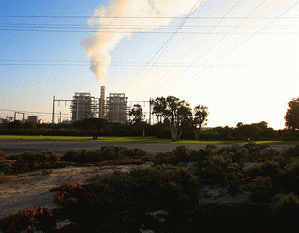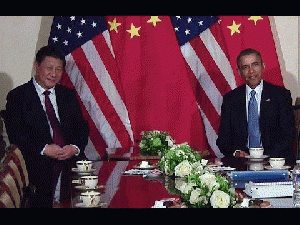Reprinted from The Guardian
It is becoming increasingly difficult to avoid the reality that the days of coal as a source of energy are numbered. In a world where carbon emissions will increasingly have to be constrained, coal, as the dirtiest of the fossil fuels, is the energy asset most vulnerable to becoming "stranded" -- the most vulnerable, in other words, to seeing its market value collapse well ahead of its previously anticipated useful life.
This new economic and political reality is already being shaped by the fast-growing global support for the enforcement of a global "carbon budget." This idea, first proposed six years ago and formally endorsed by the International Energy Agency in 2011, has been gaining traction because of the ever-stronger scientific consensus that carbon emissions from human activity is the principal driver of destructive climate change. The spewing of 110 million tonnes a day of heat-trapping pollution into the atmosphere -- as if the atmosphere were an open sewer -- is "increasing the likelihood," says a warning from the Intergovernmental Panel on Climate Change, "of severe, pervasive and irreversible impacts for people and ecosystems."
But as the coal industry fights for survival, it has begun to rely on novel and increasingly tenuous arguments. It has embarked on a global campaign to promote coal as the solution to energy poverty. This disingenuous claim is predicated on the notion that coal is the cheapest way of providing electricity to the one-fifth of the world's population lacking access to an electricity grid.
This exploitation of an urgent humanitarian need to promote more coal-burning in poor countries is extremely misleading. If ever implemented, it would actually significantly worsen the condition of the 1.3 billion people mired in energy poverty.
Most developing countries face serious challenges that are already being exacerbated by climate change-related extreme weather events. They are being battered by stronger storms, more destructive floods, deeper and longer droughts and disruptive switches in the seasonal timing of rain. Think of the devastation wreaked by typhoon Haiyan in the Philippines, or the flooding in Kashmir last summer. Other manifestations of the climate crisis are already retarding economic growth, harming subsistence agriculture and creating social unrest. Food security and water supplies are being compromised, natural resources stressed, and critical infrastructure crippled.
But the relative merits of different energy options must be considered over the long term with an emphasis on three factors: financial cost, reliability, and impact on society and the environment. And when viewed through this lens, renewable energy -- particularly solar photovoltaic energy, or PV -- far outranks coal as the best future energy choice for developing nations.
Energy poverty is concentrated in rural areas, with sub-Saharan Africa and India accounting for 48% and 24%, respectively, of those without access to energy. As a recent report by the Carbon Tracker Initiative highlights, grid costs become prohibitive for coal in rural areas when the investment needed to build a thermal power plant is combined with the cost of building electricity grid extensions and importing fuel. For instance, 93% of those in sub-Saharan Africa who lack access to energy live in countries that do not produce coal.
Moreover, even in countries that do have coal reserves -- such as India and South Africa -- there is no "regulatory compact" of the kind that led the US and most other developed nations to provide electricity at affordable rates to poor and rural areas via the principle of universal service. Instead, the practice in most developing countries has often been to direct new electricity flows preferentially to wealthy high-volume industrial and mining operations, while ignoring and bypassing low-income populations.
By contrast, the astonishingly rapid decline in the cost of electricity from solar, plus the fact that it is quick to install, reliable, and that the technology for storing it is improving, make it an increasingly attractive option for rapid electrification in rural communities.
The cost of the "fuel" needed for PV electricity is zero -- which provides economic security for impoverished families who would otherwise be at the mercy of historically volatile fluctuations in fossil-fuel prices. Eliminating the burden of fuel costs also helps, over time, to offset the financial cost required to install renewables.
The true cost of coal cannot be calculated without including the so-called airpocalypse. Air pollution is already reducing life expectancy in northern China by five and a half years, and in India (whose capital, New Delhi, has the worst air pollution of any large city in the world) by 3.2 years. The price of coal would increase dramatically if it reflected the cost borne by society from the pollution that causes hundreds of thousands of premature deaths each year in coal-dependent countries.
Coal mining as a water-intensive practice strains natural resources and destroys crop lands -- not least with disease-causing depositions of mercury and cadmium that pass into the food supply. Moreover, the enormous government subsidies much of the industry still receives makes their true cost to society far higher than renewables, whose carbon-free nature obviously makes them preferable with regard to society and the environment.
(Note: You can view every article as one long page if you sign up as an Advocate Member, or higher).







